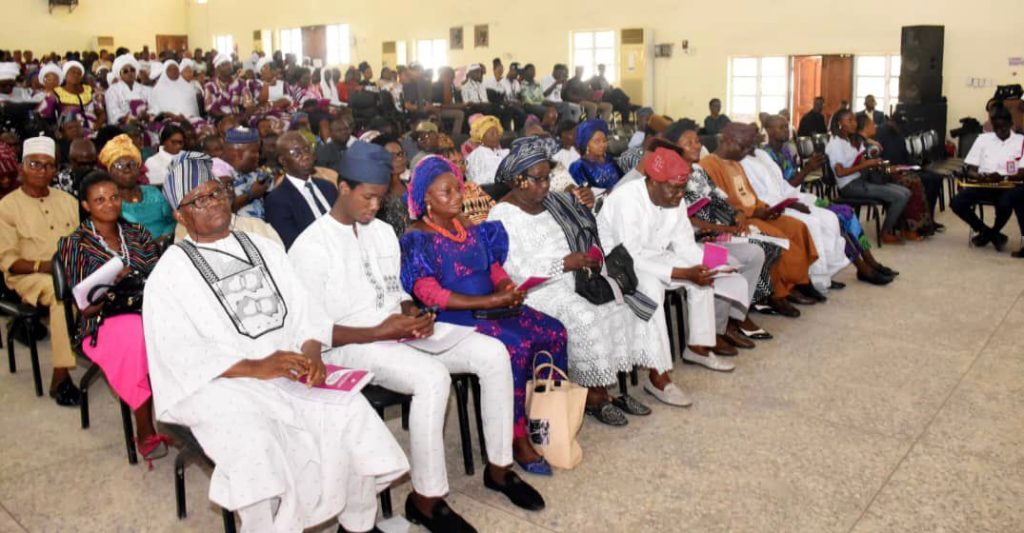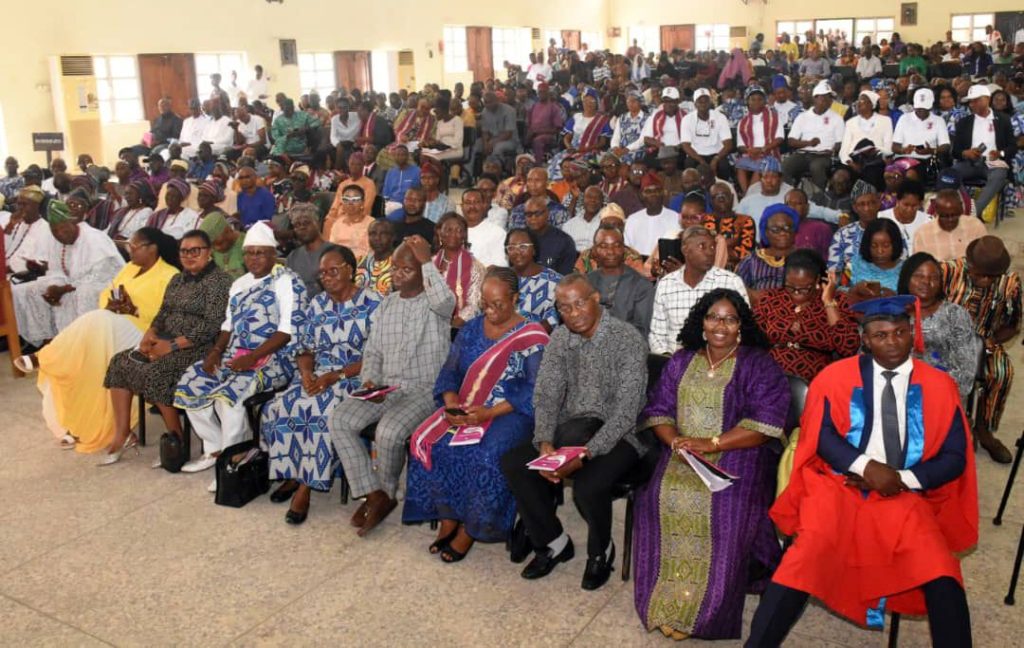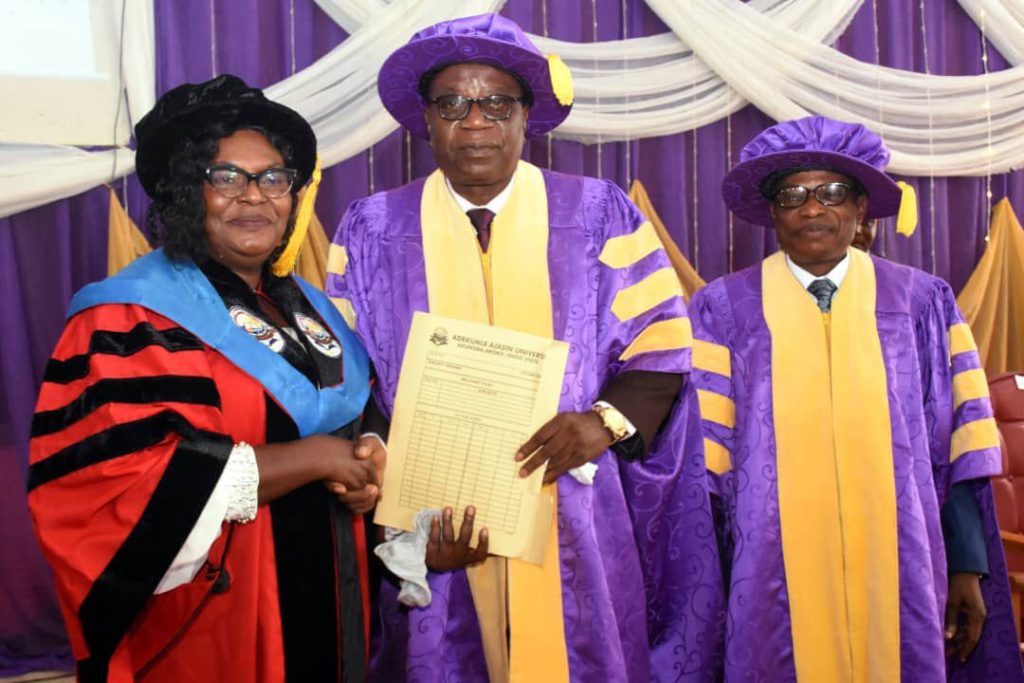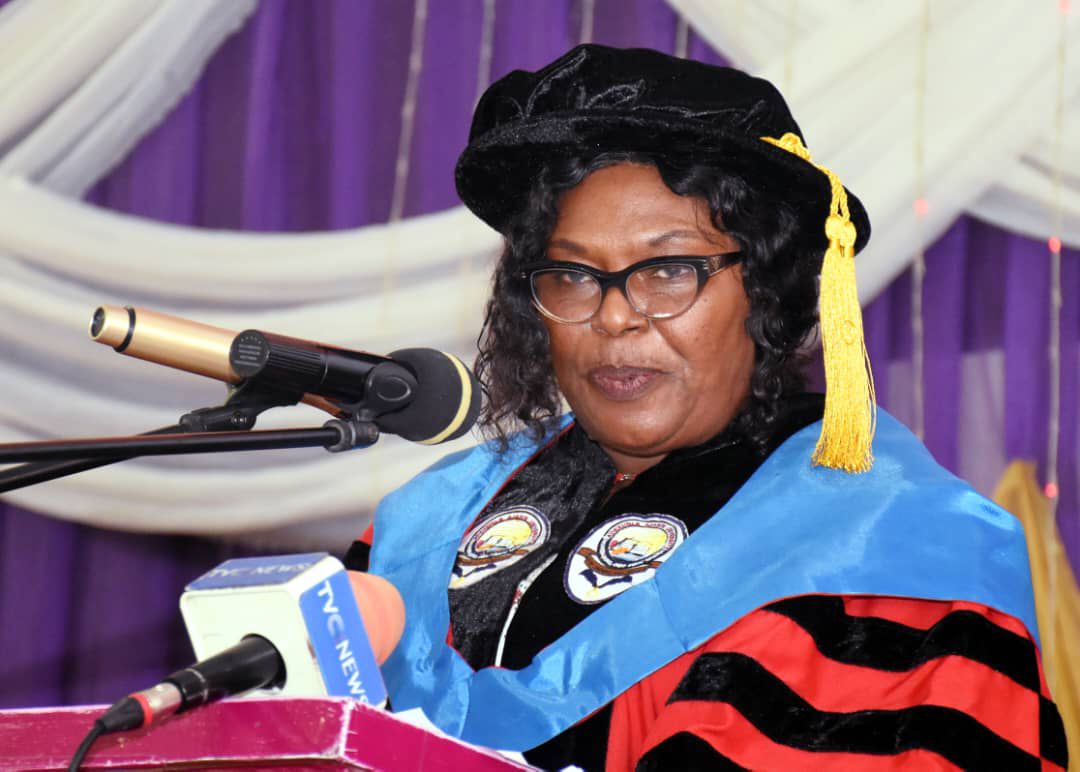Olubunmi Omoniyi, a Professor of Science Education and Curriculum Studies, has called on educators and policymakers to adopt transformative teaching strategies that recognize and nurture the unique potential in every student.
Prof. Omoniyi made this call on Tuesday, July 15, 2025, while delivering the 43rd Inaugural Lecture of Adekunle Ajasin University, Akungba-Akoko, titled “A Science Classroom Where Everyone is a Genius: Management through Phenomenological Methodology.”
Drawing from her decades of experience teaching Chemistry in both secondary schools and tertiary institutions, the Professor declared, “A classroom where everyone is a genius is not a dream. It is a possibility waiting to be unlocked with the right methods.”

She emphasized the need for learning environments to move beyond rote memorization and become vibrant spaces where students are encouraged to explore, experiment, and innovate.
Recounting her Ph.D. research, which employed an activity-based learning cycle to teach complex chemistry topics like electrolysis and thermodynamics, Omoniyi said the results were remarkable. “All 60 students I taught passed — at different paces, yes — but none was left behind. That was the moment I realized: there are no dullards, only untapped genius.”
She identified the phenomenological methodology as a powerful tool for unlocking students’ brilliance. This student-centered approach, she explained, considers learners’ unique experiences, abilities, and learning paces, with effective classroom management as its foundation.

“Good classroom management, when combined with strategic pedagogical methods, turns classrooms into workshops of brilliance,” she asserted, citing both her own findings and those of other scholars.
Prof. Omoniyi also highlighted critical challenges facing science education in Nigeria, including underfunded laboratories, unqualified science teachers, outdated curricula, and the reliance on foreign teaching frameworks unsuited to Nigerian learners. She called for innovative, inquiry-based, and constructivist teaching methods such as the Learning Cycle, Scaffolding, and Vee Mapping to foster deeper understanding and curiosity.
Underscoring the need for pedagogical training, she stated: “Many of our science teachers and lecturers lack professional qualifications in teaching. While they may have mastery of their subject matter, they often lack the pedagogical skills required to make science engaging and accessible. Teacher training programs must emphasize the ‘how’ of teaching science.”

She urged parents to play their part in nurturing scientific curiosity from an early age by providing stimulating materials like puzzles and science kits. “Parents and guardians play a crucial role in fostering a love for science from an early age,” she said.
Prof. Omoniyi also emphasized the importance of government investment in science education infrastructure. “Government support is essential to equip laboratories with modern facilities. As students’ enrollment in science courses increases, these spaces must be prepared to accommodate and inspire young scientists,” she said.
She advocated support for indigenous textbook authors, stressing that such materials should reflect the specific needs of Nigerian students and society. “Indigenous authors should be encouraged and funded to produce affordable and accessible textbooks tailored to our learners’ realities,” she noted.
The Professor also called for curriculum reform aligned with national development goals and the lived experiences of learners. “Curriculum planners should integrate topics that resonate with students’ aspirations and societal needs. A relevant curriculum helps students see the practical value of their education. Some private schools use the British curriculum, which often doesn’t reflect the needs of Nigerian learners or society,” she explained.
Prof. Omoniyi concluded with a passionate appeal to all stakeholders in the education sector — policymakers, teachers, and parents — to embrace the mission of uncovering the genius in every child. “It is our shared duty to discover, nurture, and celebrate the brilliance within each learner. Let us rise to this challenge,” she said.
In his opening remarks, the Vice Chancellor and Chairman of the occasion, Prof. Olugbenga Ige, commended Prof. Omoniyi for her dedication to scholarship, her impactful contributions to the field of science education, and her service to humanity.


